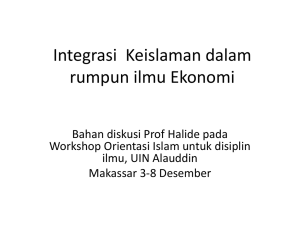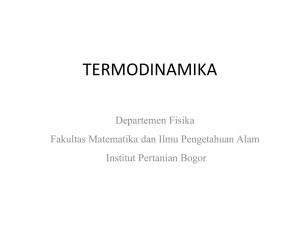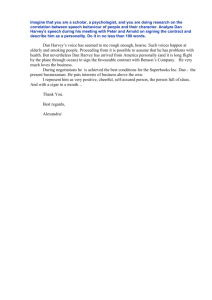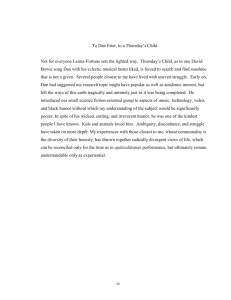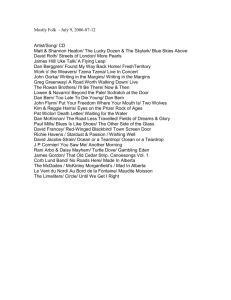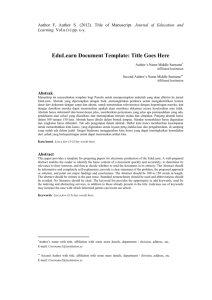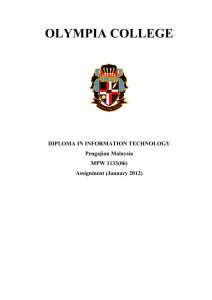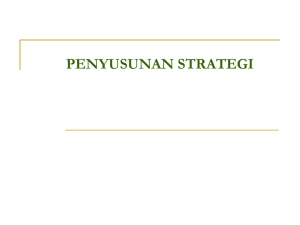Prof. Basu Swastha: Disertasi, Temuan Baru Bagi Ilmu Pengetahuan
advertisement
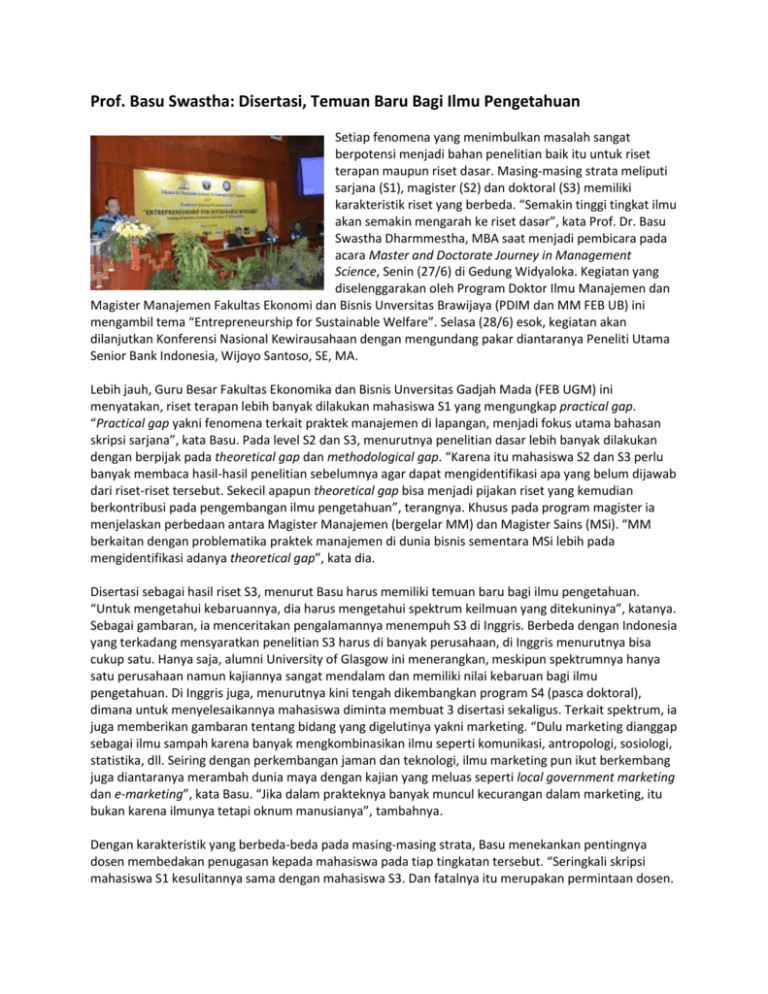
Prof. Basu Swastha: Disertasi, Temuan Baru Bagi Ilmu Pengetahuan Setiap fenomena yang menimbulkan masalah sangat berpotensi menjadi bahan penelitian baik itu untuk riset terapan maupun riset dasar. Masing-masing strata meliputi sarjana (S1), magister (S2) dan doktoral (S3) memiliki karakteristik riset yang berbeda. “Semakin tinggi tingkat ilmu akan semakin mengarah ke riset dasar”, kata Prof. Dr. Basu Swastha Dharmmestha, MBA saat menjadi pembicara pada acara Master and Doctorate Journey in Management Science, Senin (27/6) di Gedung Widyaloka. Kegiatan yang diselenggarakan oleh Program Doktor Ilmu Manajemen dan Magister Manajemen Fakultas Ekonomi dan Bisnis Unversitas Brawijaya (PDIM dan MM FEB UB) ini mengambil tema “Entrepreneurship for Sustainable Welfare”. Selasa (28/6) esok, kegiatan akan dilanjutkan Konferensi Nasional Kewirausahaan dengan mengundang pakar diantaranya Peneliti Utama Senior Bank Indonesia, Wijoyo Santoso, SE, MA. Lebih jauh, Guru Besar Fakultas Ekonomika dan Bisnis Unversitas Gadjah Mada (FEB UGM) ini menyatakan, riset terapan lebih banyak dilakukan mahasiswa S1 yang mengungkap practical gap. “Practical gap yakni fenomena terkait praktek manajemen di lapangan, menjadi fokus utama bahasan skripsi sarjana”, kata Basu. Pada level S2 dan S3, menurutnya penelitian dasar lebih banyak dilakukan dengan berpijak pada theoretical gap dan methodological gap. “Karena itu mahasiswa S2 dan S3 perlu banyak membaca hasil-hasil penelitian sebelumnya agar dapat mengidentifikasi apa yang belum dijawab dari riset-riset tersebut. Sekecil apapun theoretical gap bisa menjadi pijakan riset yang kemudian berkontribusi pada pengembangan ilmu pengetahuan”, terangnya. Khusus pada program magister ia menjelaskan perbedaan antara Magister Manajemen (bergelar MM) dan Magister Sains (MSi). “MM berkaitan dengan problematika praktek manajemen di dunia bisnis sementara MSi lebih pada mengidentifikasi adanya theoretical gap”, kata dia. Disertasi sebagai hasil riset S3, menurut Basu harus memiliki temuan baru bagi ilmu pengetahuan. “Untuk mengetahui kebaruannya, dia harus mengetahui spektrum keilmuan yang ditekuninya”, katanya. Sebagai gambaran, ia menceritakan pengalamannya menempuh S3 di Inggris. Berbeda dengan Indonesia yang terkadang mensyaratkan penelitian S3 harus di banyak perusahaan, di Inggris menurutnya bisa cukup satu. Hanya saja, alumni University of Glasgow ini menerangkan, meskipun spektrumnya hanya satu perusahaan namun kajiannya sangat mendalam dan memiliki nilai kebaruan bagi ilmu pengetahuan. Di Inggris juga, menurutnya kini tengah dikembangkan program S4 (pasca doktoral), dimana untuk menyelesaikannya mahasiswa diminta membuat 3 disertasi sekaligus. Terkait spektrum, ia juga memberikan gambaran tentang bidang yang digelutinya yakni marketing. “Dulu marketing dianggap sebagai ilmu sampah karena banyak mengkombinasikan ilmu seperti komunikasi, antropologi, sosiologi, statistika, dll. Seiring dengan perkembangan jaman dan teknologi, ilmu marketing pun ikut berkembang juga diantaranya merambah dunia maya dengan kajian yang meluas seperti local government marketing dan e-marketing”, kata Basu. “Jika dalam prakteknya banyak muncul kecurangan dalam marketing, itu bukan karena ilmunya tetapi oknum manusianya”, tambahnya. Dengan karakteristik yang berbeda-beda pada masing-masing strata, Basu menekankan pentingnya dosen membedakan penugasan kepada mahasiswa pada tiap tingkatan tersebut. “Seringkali skripsi mahasiswa S1 kesulitannya sama dengan mahasiswa S3. Dan fatalnya itu merupakan permintaan dosen. Jika kemampuan mahasiswa mumpuni sich tidak apa-apa”, katanya. Dengan semakin luasnya spektrum kajian sebuah ilmu, maka menurut Basu, seorang mahasiswa S3 harus punya period of residency minimal 3 tahun. “Tiga tahun itu periode minimal untuk menguasai sebuah ilmu”, katanya. Bukan hanya itu saja, ia juga menekankan pentingnya budaya kritis dalam menerima kebaruan sebuah ilmu pengetahuan. Misalnya dalam mengkaji hasil penelitian jurnal yang bisa saja kurang teliti ataupun salah metodologi. Membuka acara, Ketua Program Studi PDIM, Prof. Dr. Ubud Salim, MA juga menekankan pentingnya kedalaman sebuah penelitian. Sebuah disertasi, menurutnya memuat konsep, model dan teori baru dari penelitian yang dilakukan. Terkait hal ini, ia mengilustrasikan kesimpulan yang bisa saja salah karena adanya research gap. “Penelitian tidak bisa didasarkan pada fakta semata. Fakta tersebut masih harus didalami dan diuji dengan realitas yang ada”, kata Ubud. Mengangkat tema tentang kewirausahaan, menurut Ubud sangat sesuai untuk kondisi Indonesia saat ini. “Irlandia merupakan salah satu negara yang sukses memunculkan kewirausahaan”, katanya. Pada era 80-an, negara ini hanya mampu mendatangkan Foreign Direct Investment (FDI) sebesar USD 167 juta tetapi hanya dalam waktu 20 tahun kemudian bisa melonjak hingga USD 24 M. Ada tiga hal utama yang menjadi perhatian Ubud terkait keberhasilan Irlandia ini. Ketiga hal tersebut adalah melimpahnya pekerja yang menguasai IPTEK, infrastruktur yang bagus serta pemerintahan yang bersih, sopan dan berwibawa. Diwawancarai PRASETYA Online, Ketua pelaksana kegiatan, John Agustinus, SE, MM menyampaikan, kegiatan ini diikuti mahasiswa dan alumni program magister dan doktor ilmu manajemen seluruh Indonesia. Sebanyak 36 pemakalah berhasil dikumpulkan dari berbagai perguruan tinggi di Indonesia seperti Universitas Haluoleo, Universitas Gadjah Mada, Universitas Pembangunan Nasional (UPN) Veteran Yogyakarta serta Universitas Sebelas Maret Surakarta. Makalah ini kemudian dipresentasikan untuk dimasukkan jurnal/proceeding. Selain itu, dipilih juga pemakalah dan penyaji terbaik. [nok] Prof. Basu Swastha: A Dissertation, New Discovery For Science Every phenomenon that causes problem is potential to be a subject of research for both applied and basic research. Each stratum includes undergraduate (S1), master (S2) and doctoral (S3) has the characteristics of different research. "The higher level of knowledge will increasingly lead to basic research," said Prof. Dr. Basu Swastha Dharmmestha, MBA as a speaker at the event of Master and Doctorate Journey in Management Science on Monday (27/6) in Widyaloka Building. The activity is organized by the Doctoral Program in Management Science and Master of Management Faculty of Economics and Business Universitas Brawijaya (PDIM and MM FEB UB) has a theme of "Entrepreneurship for Sustainable Welfare". On Tuesday (28/6), tomorrow, the activity will be continued with the National Conference on Entrepreneurship by inviting the experts including Senior Principal Researcher of Bank Indonesia, Wijoyo Santoso, SE, MA. Furthermore, a Professor from Faculty of Economics and Business Universitas Gadjah Mada (FEB UGM) stated, more applied researches were carried out by S1students revealed practical gaps. "Practical gaps are phenomena that are relate to the management practice in the field, become the main focus of discussion in undergraduate’s theses," said Basu. At the level of S2 and S3, according to him, more basic researches were done by rests on theoretical and methodological gaps. "Therefore, students of S2 and S3 need a lot to read the results of previous studies in order to identify what has not been answered from those researches. Slightest theoretical gaps can be the foundation of researches which later contribute to the development of sciences, "he explained. Especially on master program, he explained the differences between the Master of Management (MM degree) and Master of Sciences (MSi). "MM is related to the problems of management practices in the world of business while MSi is more on identifying the theoretical gaps," he said. A dissertation as a result of S3’s research, according to Basu, it must have new findings for sciences. "To know the novelty, he must know the spectrum of mastered sciences," he said. As an illustration, he recounted his experience when taking S3 in UK. In contrast to Indonesia, which sometimes required S3’s researches should be in many companies; in UK, according to him, it could be just one. However, an alumni of the University of Glasgow explained, although the spectrum was only one company but the studies were very deep and had a novelty value to sciences. In UK too, according to him, is now being developed by S4 programs (post doctorals), in which students were asked to complete three dissertations at once. Related to spectrum, he also provided an overview of the field that he did, the marketing. "In the past, marketing is regarded as junk science because it combines many sciences such as communication, anthropology, sociology, statistics, etc. Along with the changing times and technology, the sciences of marketing also developed including the expanded of virtual world with an extensive review such as local government marketing and e-marketing, "said Basu." If in practice many emerging fraud in marketing, it's not because of sciences but the person itself", he added. With different characteristics in each stratum, Basu stressed the importance of distinguishing the assignment of lecturers to students at each level. "Often the theses of S1 to S3 students have the same predicaments. And it is a fatal if it is demanded by a lecturer. It is fine if a student has qualified ability", he said. With the increased spectrum of the study of a science, then, according to Basu, a student of S3 must has the period of residency at least 3 years. "Three years are the minimum period to master a science," he said. Not only that, he also emphasized the critical importance of culture in accepting the novelty of a science. For example in reviewing the results of research journals that might be inaccurate or incorrect methodology. To open the event, a Chairman of PDIM Study Programs, Prof. Dr. Ubud Salim MA also emphasized the importance of a depth study. A dissertation, according to him, it included concepts, models and new theories of the conducted research. Related to this, he illustrated the conclusions that could be wrong because of the research gaps. "A research cannot be based on facts only. The fact is still must be explored and tested by reality, "said Ubud. The theme of entrepreneurship in this event, according to Ubud, it was very suitable for the conditions in Indonesia today. "Ireland is one country that lead to successful entrepreneurship," he said. In the '80s, the country was only able to bring in Foreign Direct Investment (FDI) of USD$ 167 millions but in only 20 years later it could be increased up to USD$ 24 billions. There were three major things that became Ubud’s concern related to the success of Irish . The three major concerns were the abundance of workers who mastered science and technology, good infrastructure and clean government, courteous and dignified. Interviewed by PRASETYA Online, the chairman of the activity, John Augustine, SE, MM conveyed, this activity was followed by students and alumni of master and doctoral programs of management science throughout Indonesia. A total of 36 speakers were compiled from various universities in Indonesia such as Universitas Haluoleo, Universitas Gadjah Mada, Universtas Pembangunan Nasional (UPN) Veteran Yogyakarta and Universitas Sebelas Maret Surakarta. These papers were presented for inclusion journals/proceedings. In addition, it also selected the best speaker and presenter. [nok]
